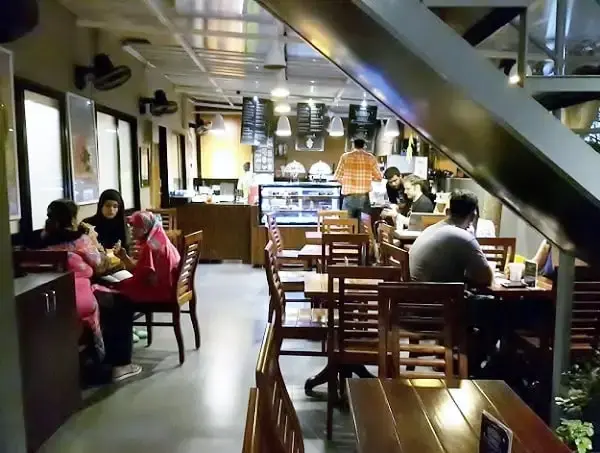
Desk Reporter
10 Mar 2023
The Rise of Feline Market Among Millennials in India: Challenges and Solutions
According to a report by Euromonitor International, the pet care market in India was projected to grow at a compound annual growth rate (CAGR) of 14.9% from 2020 to 2025.
Cats have been gaining popularity in India in recent years, and millennials are one of the major demographics driving this trend. Cats are considered low-maintenance pets, making them an attractive option for millennials who often have busy lifestyles and limited living space. Additionally, cats are known for their playful personalities, which can make them great companions for young adults.
Several factors are contributing to the growth of the feline market in India among millennials. One of the most significant factors is the increasing number of cat cafes and cat adoption centers in major cities. These cafes and centers provide a space for millennials to interact with cats and learn more about cat ownership, making it easier for them to adopt a cat of their own.
Another factor is the growing trend of pet parenting among millennials. Many young adults view their pets as family members and are willing to invest time and money in their care. As a result, there is a growing demand for high-quality cat food, toys, and accessories in the Indian market.
Challenges faced by millennials in Cat care in India
Millennials in India who choose to keep cats as pets may face several challenges related to cat care. Some of the common challenges faced by millennials in cat care in India are:
Lack of knowledge and experience: Many millennials in India may not have grown up with pets and may not have experience with cat care. This lack of experience can make it challenging to understand cat behavior, their needs, and how to provide proper care.
Limited living space: Many millennials in India live in small apartments or shared accommodation with limited space. This can make it challenging to provide adequate space for cats to play, exercise, and explore.
Cat-friendly accommodation: Many landlords and housing societies in India do not allow pets, including cats. This can make it challenging for millennials to find cat-friendly accommodation.
Limited availability of cat-specific products and services: Although the feline market is growing in India, there is still a limited availability of cat-specific products and services, such as cat food, litter boxes, and veterinary care.
High cost of cat care: Providing high-quality cat care can be expensive, and many millennials may not have the financial resources to invest in their cat's health and well-being.
Lack of awareness about adoption: Many millennials may not be aware of the importance of adopting cats from animal shelters and rescue organizations. As a result, they may end up buying cats from pet stores or breeders, which can contribute to the problem of animal overpopulation.
It is essential to educate and raise awareness about cat care among millennials to ensure they provide the best possible care for their feline companions.

Cat food Awareness in India among Millennials in India
Millennials in India are increasingly aware of the importance of proper nutrition for their pets, including cats. Providing a well-balanced diet is essential for maintaining the health and well-being of cats. Here are some ways in which millennials in India are taking steps to ensure their cats' nutritional needs are met:
Choosing high-quality cat food: Many millennials in India are willing to invest in high-quality cat food that meets their cat's nutritional needs. They are becoming more aware of the ingredients in their cat's food and are selecting brands that use high-quality ingredients.
Homemade cat food: Some millennials in India prefer to prepare homemade cat food to ensure that their cat is getting a well-balanced and nutritious diet. They research cat food recipes and prepare meals that include proteins, carbohydrates, and essential nutrients.
Avoiding certain foods: Many millennials are aware that some human foods can be harmful to cats and avoid feeding them foods that could be toxic, such as chocolate, onion, and garlic.
Supplements: Some millennials in India supplement their cat's diet with additional vitamins and minerals to ensure they are getting all the necessary nutrients.Consulting with veterinarians: Many millennials in India consult with veterinarians to determine their cat's nutritional needs and get advice on the best cat food brands and dietary supplements to use.

There are several cafes and restaurants in India that are pet-friendly and accept cats. Here are some popular ones:
Cat Cafe Studio, Mumbai: This cafe is a popular destination for cat lovers and has a variety of cats that you can play with while enjoying your food and beverages.
The Pint Room, Bengaluru: This restaurant has a dog-friendly outdoor seating area and allows cats in their indoor section.
The Love Room Cafe, Kolkata: This cozy cafe allows both dogs and cats inside and is known for its relaxed atmosphere.
Gostana, Mumbai: This pet-friendly cafe has a special menu for pets and allows cats and dogs inside.
Social, Delhi: This popular chain of cafes has several pet-friendly outlets across India, and some of them allow cats inside.
It is essential to note that while many cafes and restaurants in India are becoming more pet-friendly, it is always best to check with the establishment beforehand to ensure that they allow cats and to inquire about their pet policy.
In conclusion, Millennials in India are increasingly interested in cat ownership and are taking steps to ensure their cats' health and well-being. While facing challenges related to cat care and nutrition, they are investing in high-quality cat food, avoiding harmful foods, preparing homemade meals, supplementing their cat's diet, and consulting with veterinarians. With growing awareness about cat care, millennials in India are providing their feline companions with the best possible care.
_edited.png)